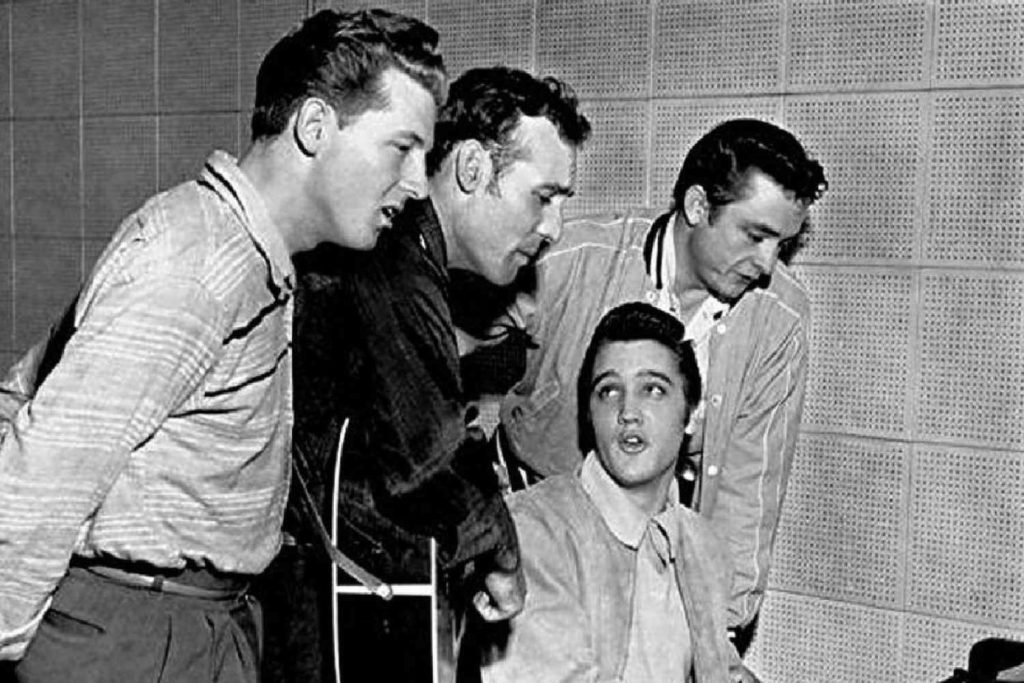Getting the low down from Clutch's Jean-Paul Gaster
After 27 years touring, hard rock four-piece Clutch feel quite comfortable onstage. Taking to the studio to bottle that lightning is the biggest challenge the band faces these days, says drummer Jean-Paul Gaster.
“It’s important, when you’re recording, to be cognisant that it’s a recording and not a live show,” says Gaster. “That’s something I think we’re still getting better at… When you get into the studio and start playing, it’s about trying to let the music flow through you in a way that will help those songs translate to the recorded medium.”
Read up on all the latest interviews here.
The band spent a year stealing time between tours to write the 15 tracks that make up their 12th studio album, the sublimely titled Book Of Bad Decisions.
Clutch took off for Sputnik Studios in Nashville, where they set to recording with Grammy-awarded engineer Vance Powell, whose previous credits include Arctic Monkeys, Wolfmother and various Jack White bands. Powell and his fastidious approach to recording imbued the album with a slightly different feel than previous Clutch releases, says Gaster.
“We make an effort not to repeat ourselves, which can be a difficult thing to do, especially when you have the same four members playing the same instruments,” he says. “Inevitably, there’s going to be some songs that sound like other songs. But because of that, we’ve really challenged ourselves to come up with concepts that are fresh in some way, and I think all of the songs on this record encapsulate a different mindset. They each have their own identity, and that was not the easiest thing to accomplish.”
Gaster, a lifelong connoisseur of the drums, used Book of Bad Decisions to tinker with new techniques. ‘Good Fire’ and album opener ‘Gimme the Keys’ feature the drummer playing a shuffle rhythm, a technique he’s been working to master for years. Album closer ‘Lorelei’ begins with a dreamy, Nick Cave-esque intro, building to a climax reinforced by Gaster’s brushes.
“When you’re playing with sticks, it’s a fast sound,” explains Gaster. “With brushes, we’re able to make long tones. So it’s not really about the impact of the sound – it’s about how you spread the sound throughout the song.”
Though some of the pieces in Gaster’s kit are vintage, he’s unsentimental about replacing and refurbishing. Gaster doesn’t put muffling on his drums, preferring a high-volume, wide-open sound.
“I like to have a cymbal I can crash on, a cymbal I can ride on, a cymbal that has a bell – a lot of colours,” says Gaster. “The same holds true for drums. If you muffle the drums down, you’re cutting out some of the sound that could otherwise be projected into the room. You make that sound smaller and smaller and smaller until, after a while, it just sounds like a cardboard box.”
As a teenager, Gaster played along to records by Jimi Hendrix and Black Sabbath, artists who would go on to influence his own rollicking and hard-hitting style. He still looks to the great artists of past eras for inspiration.
“Inevitably, for me, learning new things means studying old drummers,” says Gaster. “I think it’s important for a musician to understand where the music came from. The drums are a relatively new instrument. Although drumming has been around since the beginning of time, the drum kit just happened 100 years ago. It’s a new thing. So you look back at the folks who came before you, the ones who made the path to what drums are today. By looking back, it gives you a picture of who you are and where you can take the instrument.”
Perhaps first in Gaster’s pantheon of drummers is Elvin Jones, whose flawless command of the kit is displayed on John Coltrane’s 1965 album A Love Supreme. Throughout the ‘50s and ‘60s, Jones played and recorded with Miles Davis, Charles Mingus, Bud Powell and other monumental jazz figures. Gaster, however, views Jones more as a virtuoso of the drums than as a jazz musician per se.
Gaster saw Jones in concert many times before Jones’ death in 2004, and vividly recalls how the septuagenarian could energise a room by playing rimshot – a dynamism Gaster has spent his career working to channel.
“I can’t think of one time when I’ve sat at the drums and not thought: ‘How would Elvin do this?’” he says. “He really transformed the way people looked at drums. There are some people who really transcend genre and make an impact on the instrument as a whole – people like Jimi Hendrix or John Coltrane. For me, Elvin redefined what it meant to be a drummer.”
Clutch are taking Book of Bad Decisions on the road, touring the American Midwest and Great Lakes regions before playing across Europe, from Scandinavia to the Balkans. The band take turns writing setlists, making sure each concert is, in a sense, a one-time event.
“The showbiz aspect is not what we’re about,” says Gaster. “We’re about the music. If you’re looking for people who are going to be jumping around and have a lot of pyro, you’re at the wrong show. If you want to come to the show and bring your family and your friends and your wife and maybe even your kids and listen to some honest music, that’s a good place for you to be.”
Book of Bad Decisions is out now via Weathermaker Music.







